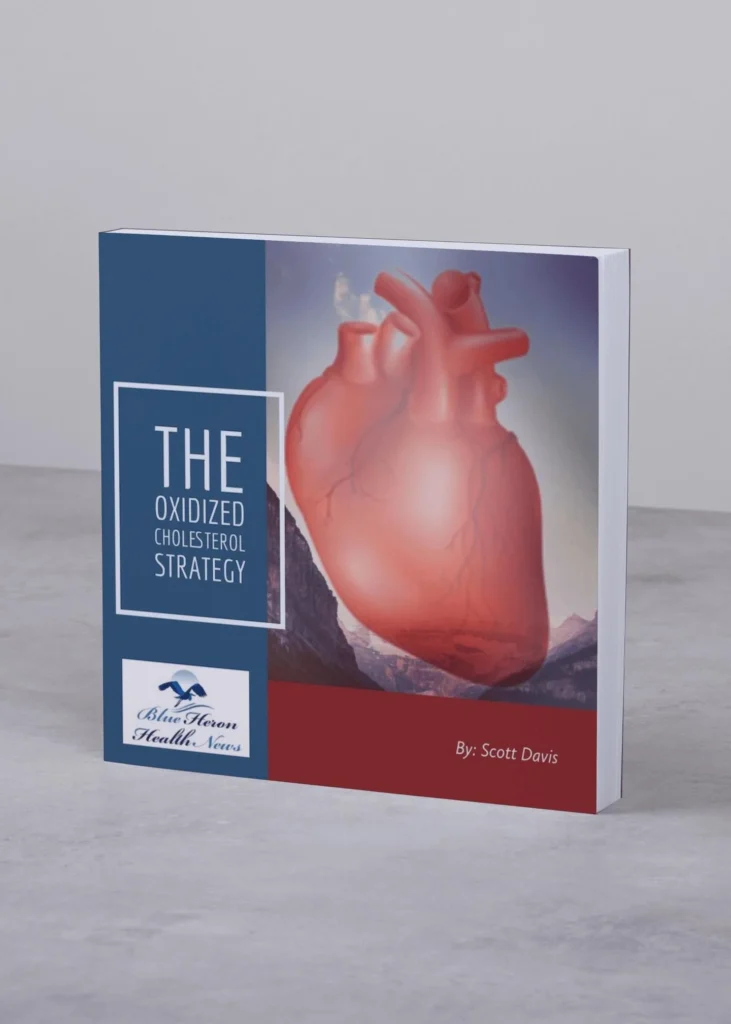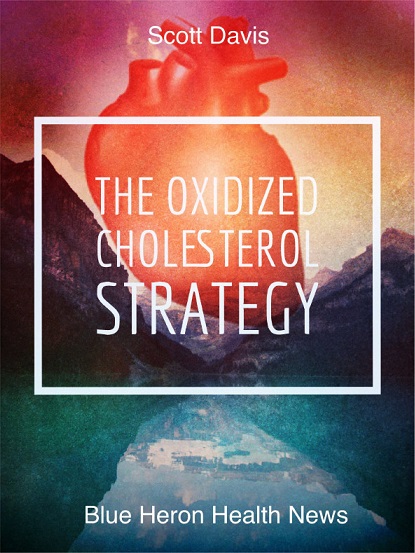High cholesterol is a common health issue affecting millions globally. It’s well-known for its effects on heart health. But, the link between high cholesterol and headaches is less understood. In this article, we’ll explore how these two conditions might be connected. We aim to shed light on the mechanisms and offer insights for better health management.
Key Takeaways
- Explore the potential link between high cholesterol and headaches, including types of headaches associated with cholesterol imbalances.
- Understand the common symptoms and warning signs that may indicate a connection between high cholesterol and headache development.
- Discover the scientific basis for the relationship between cholesterol levels and brain function, as well as the impact on blood vessel health.
- Learn about the role of different types of cholesterol, such as HDL and LDL, in influencing brain and circulatory health.
- Explore natural and lifestyle-based approaches to managing cholesterol-related headaches, as well as when to seek medical attention.
Unmasking the Link: High Cholesterol and Headaches
Could high cholesterol be triggering your headaches? Discover the potential connection and how managing cholesterol levels may bring relief.
Understanding the Link Between High Cholesterol and Headaches

Cholesterol is a lipid compound that’s vital for our health. But, when it gets out of balance, it can cause problems. This includes a possible link to headaches. It’s key for those dealing with cholesterol headaches or lipid disorders to understand this.
Types of Headaches Associated with Cholesterol
Studies show that high LDL levels, or “bad” cholesterol, might be linked to headaches. These include:
- Migraine headaches
- Tension-type headaches
- Cluster headaches
Common Symptoms and Warning Signs
People with high cholesterol might have headache symptoms like:
- Throbbing or pulsing pain
- Sensitivity to light and sound
- Nausea or vomiting
- Dizziness or vertigo
The Science Behind the Connection
The connection between high cholesterol and headaches comes from how lipid disorders affect our blood vessels. High LDL levels can cause plaque buildup, restricting blood flow and leading to headaches. This can also cause inflammation, making things worse.
“Understanding the complex relationship between cholesterol and headaches is crucial for effective management and prevention.” – Dr. Emily Walton, Neurologist
What Exactly Is High Cholesterol and How Does It Affect Your Body
Cholesterol is a waxy substance in your blood. It’s important for your body. But, too much can cause high cholesterol, which is bad for your health.
High cholesterol has two types: low-density lipoprotein (LDL) and high-density lipoprotein (HDL). LDL is the “bad” cholesterol. HDL is the “good” one. When LDL is high and HDL is low, it’s a problem.
High LDL levels can cause plaque in your arteries. This is called atherosclerosis. It can make your arteries narrow and hard, which is bad for your heart and brain. High triglyceride levels also raise your risk of heart and circulatory problems.
| Cholesterol Component | Healthy Range | Potential Consequences of Imbalance |
|---|---|---|
| LDL (bad cholesterol) | Less than 100 mg/dL | Plaque buildup in arteries, increased risk of heart disease and stroke |
| HDL (good cholesterol) | Greater than 40 mg/dL for men, greater than 50 mg/dL for women | Lower HDL levels are associated with increased risk of heart disease |
| Triglycerides | Less than 150 mg/dL | High triglyceride levels can contribute to the development of heart and circulatory issues |
High cholesterol can harm your body in many ways. It can affect your heart, brain, and more. To stay healthy, eat right, exercise, and manage your cholesterol well.
Does High Cholesterol Cause Headaches: The Medical Evidence
Research has been looking into if high cholesterol leads to headaches. Many studies have explored this link. They’ve found a complex relationship between heart health and brain function.
Research Studies and Clinical Findings
A study in the Journal of Neurology looked at many clinical studies. It found that high LDL cholesterol is linked to more headaches, especially migraines. High cholesterol can harm blood vessels and affect blood flow to the brain, causing headaches.
Expert Opinions from Medical Professionals
Doctors have shared their thoughts on high cholesterol and headaches. Dr. Emily Lau, a cardiologist, says, “High cholesterol can cause inflammation and damage blood vessels. This can lead to headaches like migraines. Keeping cholesterol levels healthy is key for both heart and brain health.”
Dr. Michael Roth, a neurologist, adds, “High cholesterol might affect the brain’s blood system. This can change blood flow and pressure, causing headaches. It’s important to manage both cholesterol and heart health to control these headaches.”

The Role of Blood Vessel Health in Headache Development
Cholesterol is essential for our bodies but can also lead to headaches. It affects our cardiovascular health and blood vessel health. High levels of LDL cholesterol can cause plaque buildup in arteries.
This buildup restricts blood flow, including to the brain. Reduced blood flow can trigger headaches by causing inflammation and constriction. It also increases pressure in the brain.
Cholesterol issues can make blood vessels release inflammatory mediators. This makes people more likely to get headaches, including migraines. It’s because the brain’s pain receptors become more sensitive.
| Cholesterol Levels | Impact on Cardiovascular Health | Potential Connection to Headaches |
|---|---|---|
| High LDL Cholesterol | Plaque buildup in arteries (atherosclerosis) | Restricted blood flow to the brain, inflammation, and increased pressure |
| Low HDL Cholesterol | Reduced protective mechanisms for blood vessels | Increased risk of vascular dysfunction and headaches |
Keeping cholesterol levels balanced is key for blood vessel health. It helps prevent headaches and improves overall health. By focusing on cardiovascular health, people can reduce headache frequency.
“Understanding the link between cholesterol and headache development is a critical step in addressing this often overlooked connection.”
Understanding Different Types of Cholesterol: HDL vs. LDL
Cholesterol is a waxy substance in our blood that’s key to our health. But, not all cholesterol is the same. There are two main types: high-density lipoprotein (HDL) and low-density lipoprotein (LDL).
Impact on Brain Function
Keeping HDL and LDL levels in balance is vital for our brain health. HDL levels, known as “good” cholesterol, boost brain performance and lower the risk of brain diseases. On the other hand, high LDL levels, or “bad” cholesterol, can harm brain function and increase the risk of headaches and other lipid disorders.
Can Cholesterol Levels Impact Your Headaches?
Headaches might be more than just a symptom. Learn how cholesterol levels could affect your head health and what to watch out for.
Circulation and Neural Effects
Cholesterol types affect more than just the brain. HDL levels help blood flow well, bringing nutrients and oxygen to our tissues, including the brain. But, high LDL levels can lead to artery blockages, reducing blood flow and disrupting brain function. This can cause headaches and other neurological issues.
It’s important to understand how cholesterol types affect our health. Managing lipid disorders and cholesterol-related headaches requires a balanced cholesterol profile. By making lifestyle changes, we can improve brain function and keep our hearts healthy.
Risk Factors That Combine High Cholesterol and Headaches
Keeping your heart healthy is key. Knowing what can lead to high cholesterol and headaches is important. Lifestyle choices and health conditions can affect both your cholesterol and headaches.
An unhealthy diet is a big risk factor. Foods high in bad fats and carbs can raise your cholesterol and cause headaches. Drinking too much alcohol and smoking also harm your heart and increase headache chances.
Genetics play a big role too. If your family has high cholesterol or heart problems, you might be at higher risk. It’s important to manage your cholesterol well.
Health issues like diabetes and thyroid problems can also raise your cholesterol and cause headaches. These conditions can upset your body’s balance, affecting your heart and brain.
| Risk Factor | Impact on Cholesterol | Influence on Headaches |
|---|---|---|
| Unhealthy Diet | Increased LDL (bad) cholesterol levels | Potential trigger for headaches |
| Excessive Alcohol Consumption | Elevated triglyceride levels | Can lead to tension-type headaches |
| Smoking | Decreased HDL (good) cholesterol levels | Linked to increased risk of migraines |
| Genetic Predisposition | Inherited high cholesterol conditions | Potential neurological effects |
| Underlying Health Conditions | Disruption of cholesterol regulation | Exacerbate headache triggers |
By making healthy lifestyle changes, managing health conditions, and checking your cholesterol, you can reduce the risk of high cholesterol and headaches. This helps keep your heart and overall health in good shape.
Natural Ways to Manage Cholesterol-Related Headaches
If you’re dealing with headaches caused by cholesterol, there are natural ways to help. You can make changes in your diet and lifestyle. These steps might lower your cholesterol and reduce headache frequency and severity.
Dietary Modifications
Changing what you eat can help manage cholesterol headaches. Eat foods that lower cholesterol, like:
- Oats and barley, which have soluble fiber to lower bad cholesterol.
- Fatty fish like salmon, mackerel, and sardines, which have omega-3s to lower triglycerides.
- Nuts and seeds, such as almonds, walnuts, and flaxseeds, which are good fats and fiber for heart health.
- Fruits and vegetables, full of antioxidants to help manage cholesterol.
Lifestyle Changes
Healthy lifestyle changes also help manage cholesterol headaches. Try these:
- Do regular exercise like brisk walking, swimming, or cycling to lower cholesterol and improve heart health.
- Use stress management like meditation, yoga, or deep breathing to reduce stress, which can help with cholesterol and headaches.
- Stop smoking and drink less alcohol, as these can harm cholesterol levels and increase headache risk.
By using these natural methods, you can actively manage your cholesterol headaches. This helps your overall heart health too.
When to Seek Medical Attention for Cholesterol-Related Headaches
If you think your headaches might be from high cholesterol, see a doctor. Some headaches can be managed with lifestyle changes. But, some symptoms need a doctor’s check.
Here are some signs that mean you should see a doctor:
- Sudden or severe headaches, especially with vision changes, dizziness, or numbness
- Headaches that keep you from doing daily activities and don’t get better with pain meds
- Headaches with chest pain, shortness of breath, or other heart problems
- Headaches that get worse or happen more often
Regular health checks and cholesterol tests are key for heart health. Your doctor can spot issues with cholesterol and migraines. They can also give advice on high cholesterol symptoms.
If you worry about your cholesterol and headaches, make an appointment. Early action can stop more problems and keep your cardiovascular health good.

Prevention Strategies and Long-term Management
Keeping your cholesterol levels healthy is key to managing cholesterol-related headaches and boosting cardiovascular health. By using effective prevention methods and long-term management, you can lessen the number and intensity of these headaches.
Exercise and Physical Activity
Regular exercise is crucial for cholesterol management and can ease lipid disorders. Activities like brisk walking, swimming, or cycling boost blood flow and HDL (good) cholesterol. They also lower LDL (bad) cholesterol. Try to do at least 30 minutes of moderate exercise daily for better heart health.
Stress Management Techniques
Stress can greatly affect cholesterol levels and headache frequency. Using stress management like meditation, yoga, or deep breathing can reduce stress hormones. It also helps you relax. Self-care activities also play a role in better cholesterol management and fewer headaches.
| Prevention Strategy | Benefit |
|---|---|
| Regular Exercise | Improves blood circulation, increases HDL, and reduces LDL cholesterol |
| Stress Management | Lowers stress hormones and promotes relaxation, contributing to better cholesterol management |
By using these prevention strategies and long-term management, you can actively keep your cholesterol levels healthy. This helps reduce cholesterol-related headaches. Talking to a healthcare professional can help create a detailed plan for your cardiovascular health and headache management.
Medications and Treatments for High Cholesterol
Keeping cholesterol levels healthy is key for heart health. Sometimes, just changing your lifestyle isn’t enough. That’s when medications and treatments come into play. Let’s look at some common ways to manage cholesterol management, LDL levels, and HDL levels.
Statins: The First Line of Defense
Statins are the top choice for cholesterol management. They stop the liver from making cholesterol, which lowers LDL levels. Studies show they greatly reduce heart disease and stroke risks.
Bile Acid Sequestrants: Binding Cholesterol for Elimination
Bile acid sequestrants are another option for high cholesterol. They grab bile acids in the gut, stopping them from being reabsorbed. This helps get rid of LDL levels from the body.
Combination Therapies: Tackling High Cholesterol from Multiple Angles
Healthcare providers might suggest combining medications for cholesterol management. This is especially helpful for those with very high LDL levels or low HDL levels.
| Medication | Mechanism of Action | Impact on Cholesterol Levels |
|---|---|---|
| Statins | Inhibit cholesterol production in the liver | Reduce LDL levels by 20-50% |
| Bile Acid Sequestrants | Bind to bile acids, preventing their reabsorption | Reduce LDL levels by 15-30% |
| Combination Therapies | Multiple mechanisms targeting different aspects of cholesterol metabolism | Potentially greater reductions in LDL and improvements in HDL levels |
While meds can help with high cholesterol, they’re best used with lifestyle changes. A healthy diet and regular exercise are key for lasting results.
The Impact of Diet on Cholesterol Levels and Headache Frequency
Eating a heart-healthy diet is key to managing cholesterol and headaches. By choosing the right foods, you can lower bad cholesterol and triglycerides. This helps your heart and might ease headache pain.
The Mediterranean diet is great for both cholesterol and headaches. It focuses on fruits, veggies, whole grains, and healthy fats like olive oil and nuts. These foods are full of nutrients that can help lower bad cholesterol and triglycerides.
Adding foods like oats, beans, and fatty fish to your diet can also help. These foods are good for your heart and might reduce headache frequency. By making smart food choices, you can improve your health and lessen headache problems.
FAQ
Can high cholesterol cause headaches?
Yes, high cholesterol might cause headaches. High LDL cholesterol can narrow blood vessels. This can lead to less blood and oxygen to the brain, causing headaches.
What are the common symptoms of cholesterol-related headaches?
Symptoms include throbbing pain, sensitivity to light and sound, nausea, and dizziness. People with high cholesterol might get headaches more often, especially migraines.
How does high cholesterol affect the body?
High cholesterol can harm your health. It can cause plaque buildup in arteries, leading to heart disease and stroke. It can also affect brain function and cause headaches.
What does the research say about the link between high cholesterol and headaches?
Studies show a link between high cholesterol and headaches, especially migraines. High cholesterol may cause vascular changes and inflammation, leading to headaches. More research is needed to understand this link.
How do blood vessel health and cholesterol levels affect headache development?
High LDL cholesterol can narrow arteries, reducing blood flow to the brain. This can trigger headaches, especially migraines. Keeping blood vessels and cholesterol healthy is key to preventing headaches.
What is the difference between HDL and LDL cholesterol, and how do they impact brain function?
HDL is “good” cholesterol, helping remove LDL from the blood. LDL is “bad” cholesterol, leading to plaque buildup. Imbalances can affect brain blood flow and oxygen, causing headaches and cognitive issues.
What are some risk factors that can combine high cholesterol and headaches?
Risk factors include a sedentary lifestyle, poor diet, obesity, and health conditions like diabetes or hypertension. Addressing these can help manage cholesterol and headaches.
How can I naturally manage cholesterol-related headaches?
Manage headaches by changing your diet, exercising regularly, and managing stress. These lifestyle changes can improve cholesterol levels and reduce headache frequency.
When should I seek medical attention for cholesterol-related headaches?
Seek medical help for persistent or worsening headaches, especially with high cholesterol. A doctor can evaluate your health and provide guidance on managing symptoms.
How can diet and nutrition affect cholesterol levels and headache frequency?
Your diet greatly affects cholesterol levels and headache risk. Eating heart-healthy foods can lower LDL and triglycerides, increasing HDL. This diet may also reduce headache frequency.
What medications and treatments are available for managing high cholesterol?
Treatments include statins, bile acid sequestrants, and other drugs. These aim to lower LDL and improve cholesterol profiles. This can help reduce headache frequency by improving heart health.
Is High Cholesterol Behind Your Head Pain?
Uncover the surprising ways high cholesterol could be influencing your headaches and explore solutions for long-term health benefits.

